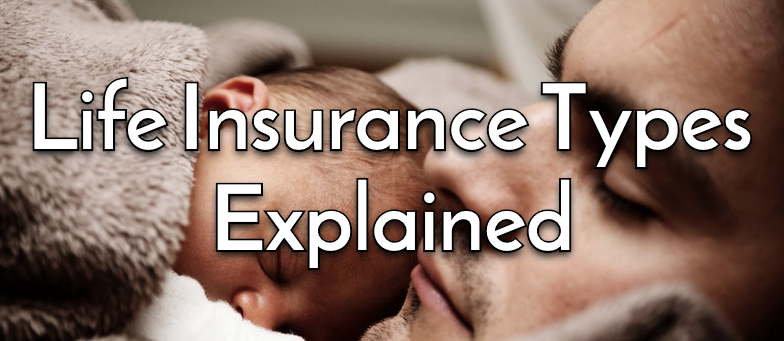
Accidental Death Insurance
Generally, an add-on to a regular life insurance policy, Accidental Death Insurance is a pretty accurate name. It is only paid if the death of the insured occurs as a result of an accident.
Accidental Death and Dismemberment Insurance
- An insurance policy that pays out only if the insured dies, becomes blind or is dismembered in an accident.
Cash Value Life Insurance
- Cash value life insurance is a policy that contains a cash value account. This cash value component typically earns interest or other investment gains and grows tax-deferred.
- You have several options if you want a cash value life insurance policy. Each policy type accrues cash value differently, but in all cases, you can get to your cash value through a loan, withdrawal or surrender.
Guaranteed Issue Life Insurance
- Guaranteed issue life insurance is a type of whole life insurance. You can’t be turned down, and the application process has no medical exam or health questions. These whole life policies are sometimes referred to as burial insurance, funeral insurance or final expense insurance.
- Often available only in small coverage amounts, such as $20,000.
- May include cash value, but since coverage amounts are small, the potential cash value is small.
- Guaranteed issue life insurance has a graded death benefit: Your beneficiaries won’t get the full payout if you pass away within two or three years after buying the policy unless the death was due to an accident. Exact rules on graded death benefits can vary, so make sure you understand them before buying guaranteed issue life insurance.
Indexed Universal Life Insurance (IUL)
- Universal life insurance comes in a lot of different flavors, from fixed-rate models to variable ones, where you select various equity accounts to invest in. Indexed universal life (IUL) insurance allows the owner to allocate cash value amounts to either a fixed account or an equity index account. Policies offer a variety of well-known indexes, such as the Nasdaq-100 or the S&P 500.1
- IUL insurance policies are more volatile than fixed ULs, but they are less risky than variable UL insurance policies because no money is actually invested in equity positions.
- IUL insurance policies offer tax-deferred cash accumulation for retirement while maintaining a death benefit. People who need permanent life insurance protection but wish to take advantage of possible cash accumulation via an equity index might use IULs as key person insurance for business owners, premium financing plans, or estate-planning vehicles. IULs are considered advanced life insurance products in that they can be difficult to adequately explain and understand.
Participating Whole Life Insurance
- A life insurance policy where the entities or individuals who own the policy receive a portion of surplus earnings from the life insurance company’s investments and business (subject to approval from the company’s Board of Directors). A “policy dividend” gets distributed to all policy owners who have participating policies.
Permanent Life Insurance or “Perm”
- A life insurance policy that provides coverage until the death of the insured person.
Term Life Insurance
- A life insurance policy for a specific time period that stipulates the insurance company must deliver a tax-free payment if the insured person dies within that timeframe. Many term policies only cover periods of 5, 10, 20 or 30 years but can be renewed, usually for a higher cost, at the end of the policy. “Term” comes from the word “terminate”, meaning that this policy terminates after a set time.
Universal Life Insurance
- A type of permanent life insurance policy that offers the low-cost protection of term life insurance as well as a savings element, which is invested to allow for cash value to build up over time. The death benefit, savings element, and premiums can be reviewed and altered by the policyholder as his or her life circumstances change.
Variable Life Insurance
- A form of permanent life insurance that provides permanent coverage to the beneficiary upon the death of the insured person. It is usually the most expensive type of cash-value insurance because it allows the policyholder to allocate parts of the premium dollars to a separate account within the insurance company’s portfolio (which is comprised of different instruments and investment funds). Furthermore, federal securities laws regulate variable policies as security contracts because they carry investment risks. These policies must therefore be sold with a prospectus.
Variable Universal Life
- Cash-value life insurance offers both payments upon the death of the insured, and an investment feature. The premium amount for this type of life insurance is flexible and can be changed depending on the insured’s life circumstances and needs. The investment feature usually includes accounts that function like mutual funds, with exposure to stocks and bonds. Such exposure offers potentially higher rates of return than those offered by regular universal life insurance or permanent life insurance policy.
Whole Life Insurance
- A type of life insurance that has both permanent life insurance and an investment component. Upon the death of the insured person, the life insurance company makes a payment to the beneficiary. The investment component accumulates a cash value that the policyholder may withdraw or borrow against.
Are You A Candidate for Privatized Banking?
